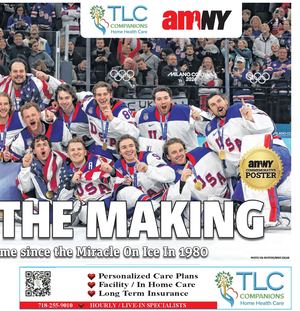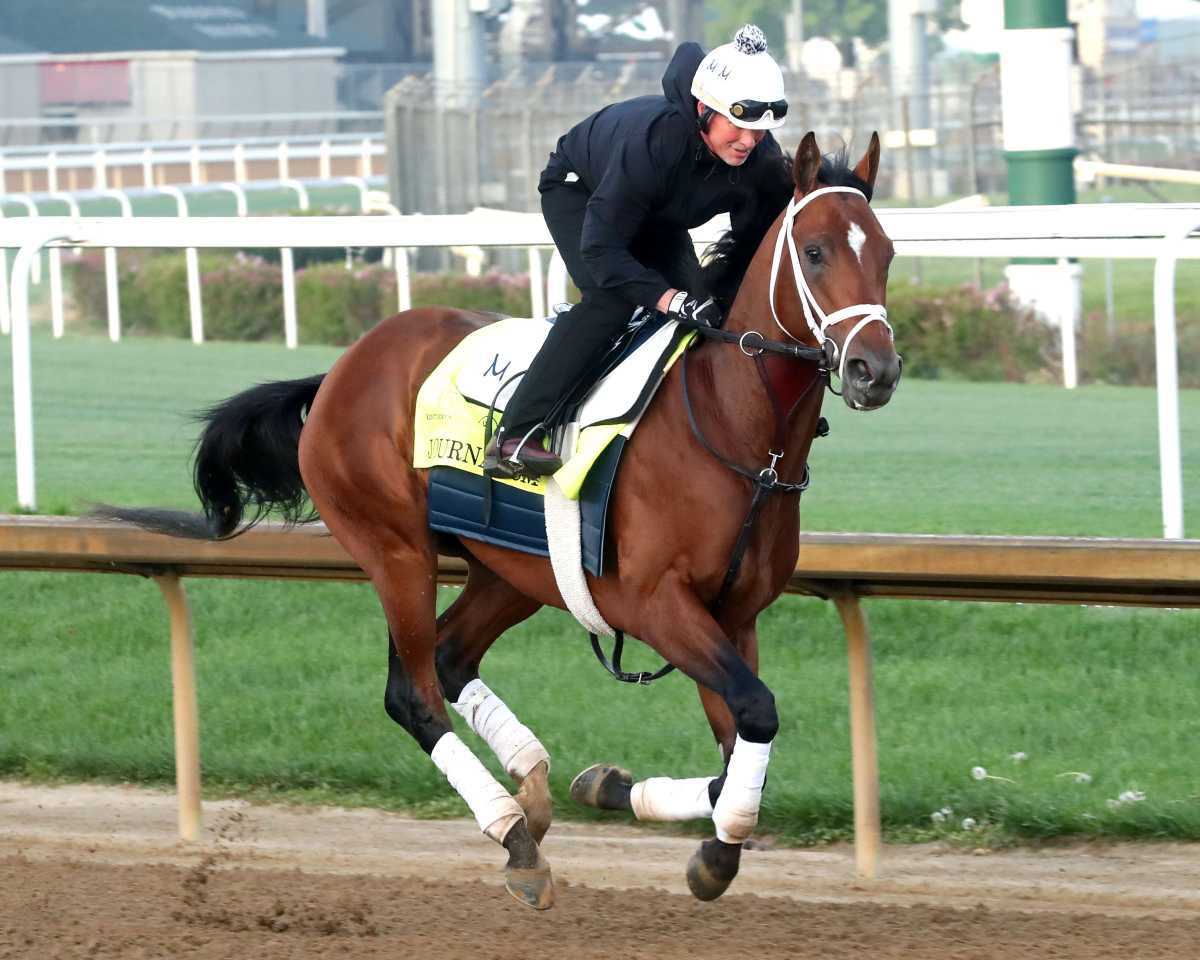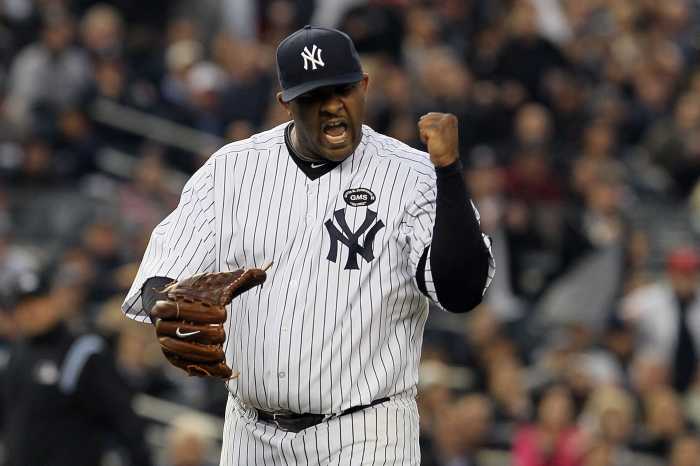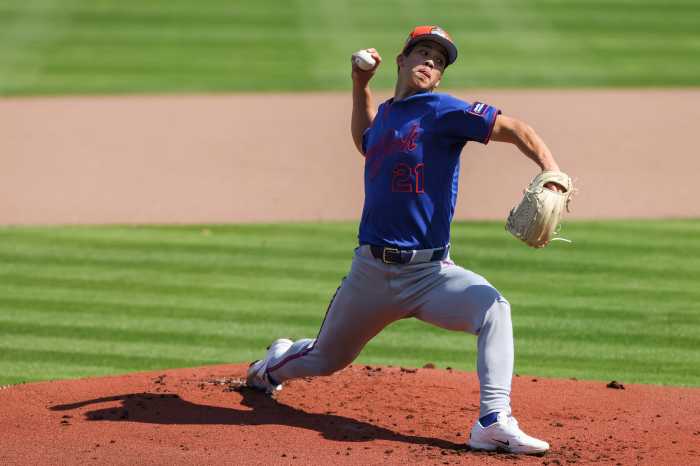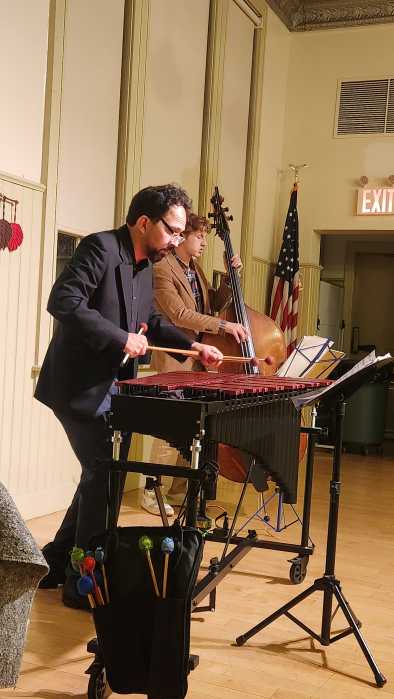Saturday’s Preakness Stakes lacks the drama the second jewel of the Triple Crown usually has, as Kentucky Derby champion Sovereignty won’t be part of the nine-horse field.
Trainer Bill Mott and Sovereignty’s connections opted to skip the Preakness and have the horse freshen up for the June 7 Belmont Stakes at Saratoga. The two-week turnaround between the Kentucky Derby and Preakness is the exception rather than the norm in thoroughbred racing today; most champion horses often run between 4-6 weeks between races, sometimes longer.
Nevertheless, three Kentucky Derby runners are part of this Saturday’s Preakness field, headlined by Journalism, who finished a close second to Sovereignty in the Derby. The other two Derby runners include Sandman (7th), who previously won the Arkansas Derby; and American Promise (16th), the Virginia Derby champion.
The Preakness Stakes will also be the last edition run at the current Pimlico Race Course in Baltimore. Not long after the race, the track will be closed for major renovations for at least two years; the next two runnings of the Preakness will be held at neighboring Laurel Park.
The 150th Preakness Stakes
Saturday, May 19
Pimlico Race Course, Baltimore
Purse: $2 million
Conditions: 1 3/16 Miles, dirt; 3-year-olds
Post time: 6:50 p.m. ET
Television: NBC/Peacock (coverage begins at 4 p.m. ET)
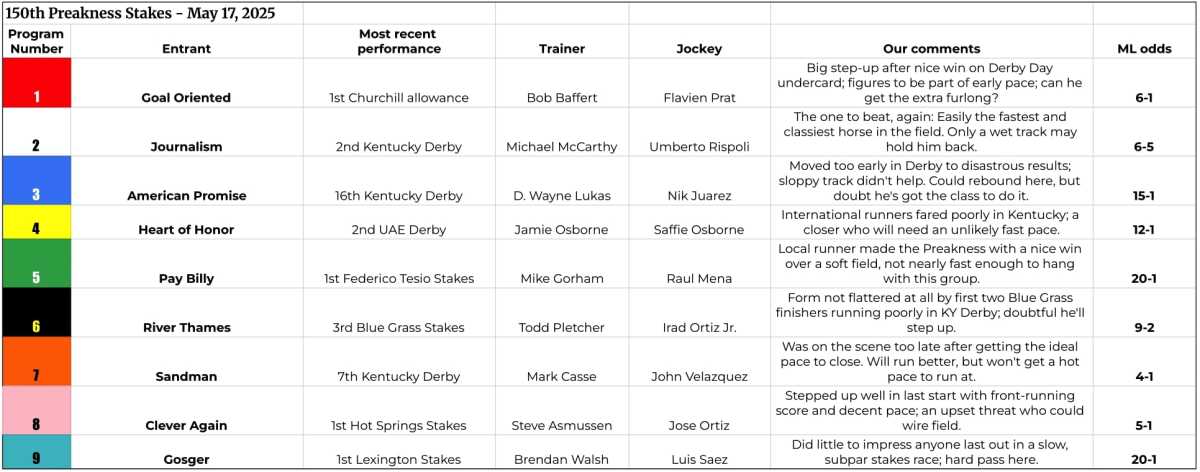
Pace prediction
The Kentucky Derby two weeks ago was loaded with front-running speed that guaranteed a hot pace even on a sloppy track, setting up ideal conditions for closers like Sovereignty and Journalism who wound up finishing one-two. Don’t expect the same kind of speed in Saturday’s Preakness Stakes on a Pimlico track that historically has always played slower than Churchill Downs.
Goal Oriented and Clever Again figure to go to the lead off the bat, with American Promise and River Thames taking up a stalking position. Journalism will settle more than likely in the middle of the pack, but he’ll be a lot closer to the front end early on than he was in the Kentucky Derby.
The opening fractions should be a lot slower than in the Derby — a 23-24 second opening quarter followed by a 46-48 second opening half-mile are not out of the question. Slower fractions will doom closers like Sandman and Gosger, who aren’t as speedy as their rivals but need a hot early pace to fall apart.
The stretch run will likely come down to whether Goal Oriented or Clever Again have the stamina to go the distance on the lead, or whether Journalism, American Promise or River Thames have the late kick to run past.
Picks to play
2.) Journalism — After finishing a close second in the Kentucky Derby, Journalism will be a heavy favorite to win the Preakness, and with good reason. He has the most speed of any runner in this field, and even if the early fractions come up soft on Saturday, Journalism has the late kick to edge clear from any frontrunner. The only thing that may hamper him, other than coming off a short two-week rest, would be a sloppy track – but not by much.
8.) Clever Again — His first stakes win came six weeks ago in the Hot Springs Stakes, an ungraded mile race on the Arkansas Derby undercard — so this is a big step up in class. Yet don’t underestimate this American Pharoah colt who comes into this race fresh and has the ability to not only control the tempo, but set up soft-enough fractions to give him a solid chance of a wire-to-wire score in the Preakness. Whether he’s fast enough to hold off the speedy Journalism is another story.
3.) American Promise — Why do we continue to support this longshot who had a disastrous trip in the Kentucky Derby? Most of it, we admit, is because his legendary trainer, 89-year-old D. Wayne Lukas, has had tremendous success in the Preakness Stakes (7 lifetime wins, including last year’s running with Seize the Grey), and has a knack of pulling off upsets in the Preakness or Belmont Stakes with horses that ran dismally in the Kentucky Derby (Oxbow in the 2013 Preakness, Commendable in the 2000 Belmont Stakes). American Promise will need a lot of things to go right — a good stalking trip, a soft-enough pace, a fast track and a dud performance by Journalism. Difficult, but not impossible.
Commentary
It’s a shame Sovereignty’s connections decided to skip the Preakness Stakes and deny the racing public the chance of seeing a potential Triple Crown bid.
Can you blame them? Mott said it’s about putting the safety and welfare of the Kentucky Derby champion first. He’s 100% right.
The Triple Crown consists of three grueling races in five weeks. Its current schedule was set in the 1960s, a time when horses typically ran every two or three weeks. At that point, it made sense to separate the Kentucky Derby, Preakness, and Belmont Stakes in such a manner.
But in 2025, the best thoroughbreds in the sport run every four, six or even eight weeks. The last round of Kentucky Derby preps is no closer than four weeks ahead of the race. There was a time when those preps were only two to three weeks ahead of the Derby. In fact, Sovereignty’s last race before his Kentucky Derby win was his second-place five weeks prior in the March 29 Florida Derby.
Lucrative stud fees and concern about equine safety have changed the game to such an extent that the best thoroughbreds run far less often. That’s not necessarily a bad thing for the sport.
What is bad for the sport is when the public is deprived of chances at a Triple Crown or to see two of the best horses of their generation compete in all three Triple Crown races. Sovereignty and Journalism could have made for an epic Preakness showdown, but it’s not to be. That matchup could happen in the Belmont Stakes, but that’s highly unlikely because after running two races in three weeks, with no Triple Crown or bonus at stake, what incentive would Journalism’s connections have to run him in the Belmont?
Change is hard in any area, and it’s especially hard in a sport like thoroughbred racing — but change is also a necessity. The game needs to evolve to meet the modern dynamic.
The Kentucky Derby, Preakness and Belmont Stakes should be separated by four weeks each. There should also be an expansion of the Road to the Kentucky Derby point system to ensure that each of these races have the best horses in them, with financial incentives offered to horses that either sweep the Triple Crown or take two of the three legs.
Without evolving the Triple Crown, the series itself will become an anachronism. What meaning will the Triple Crown have if owners no longer believe it is safe enough to pursue? — RP
